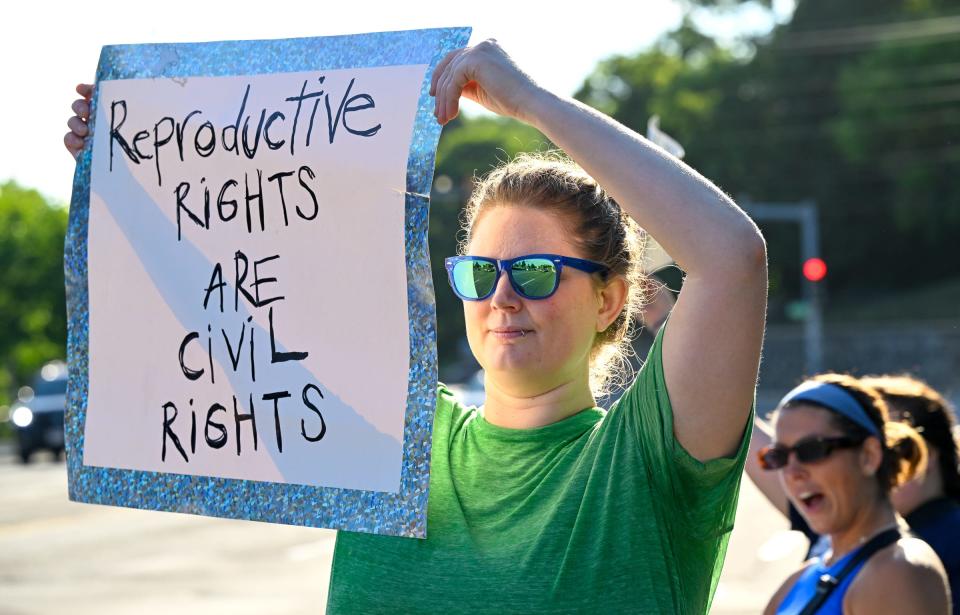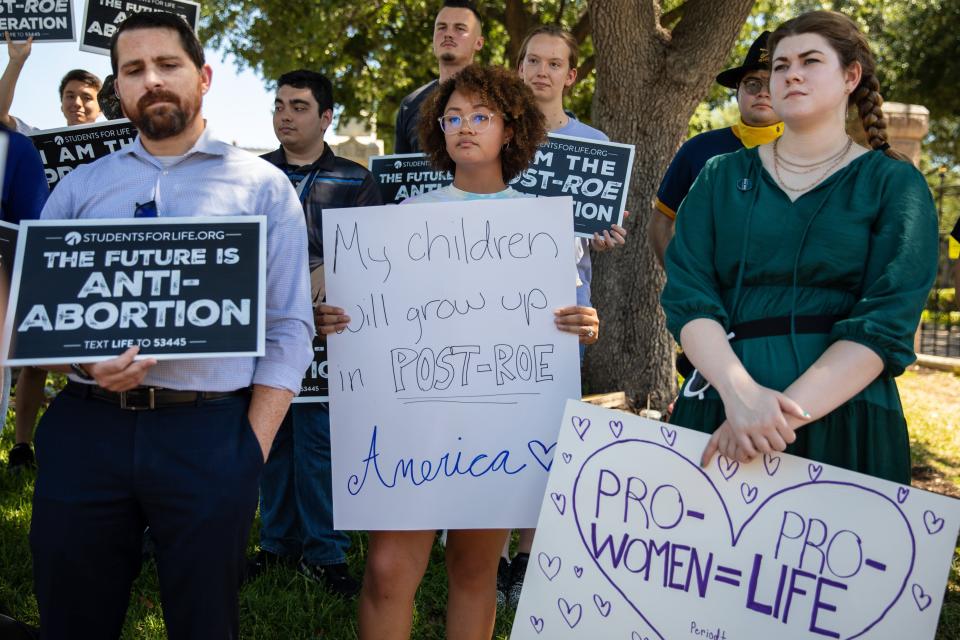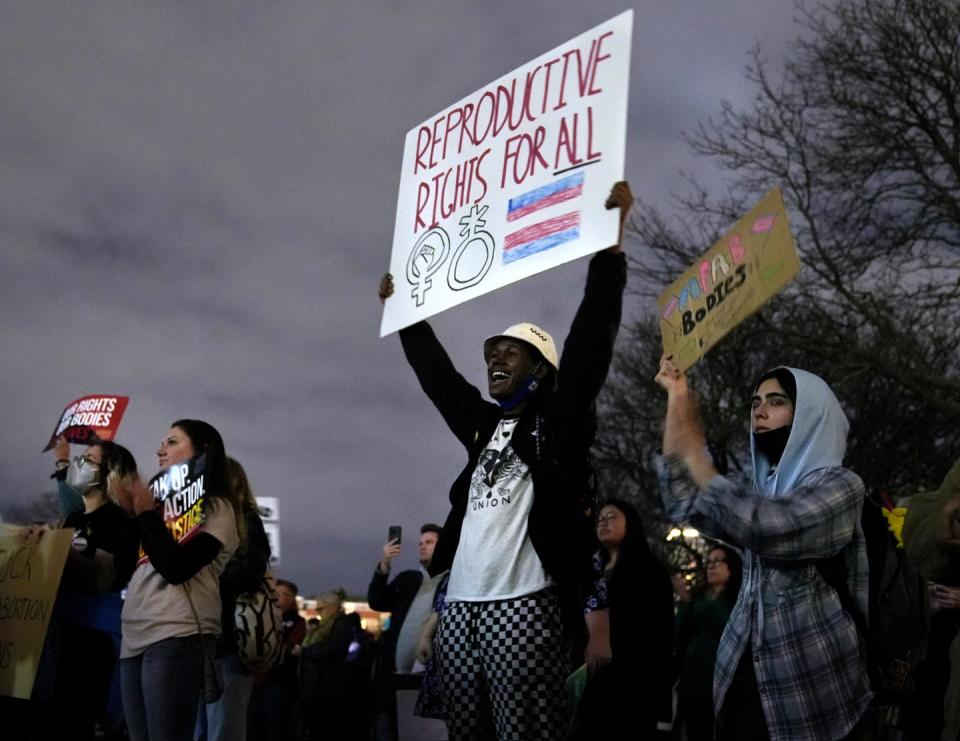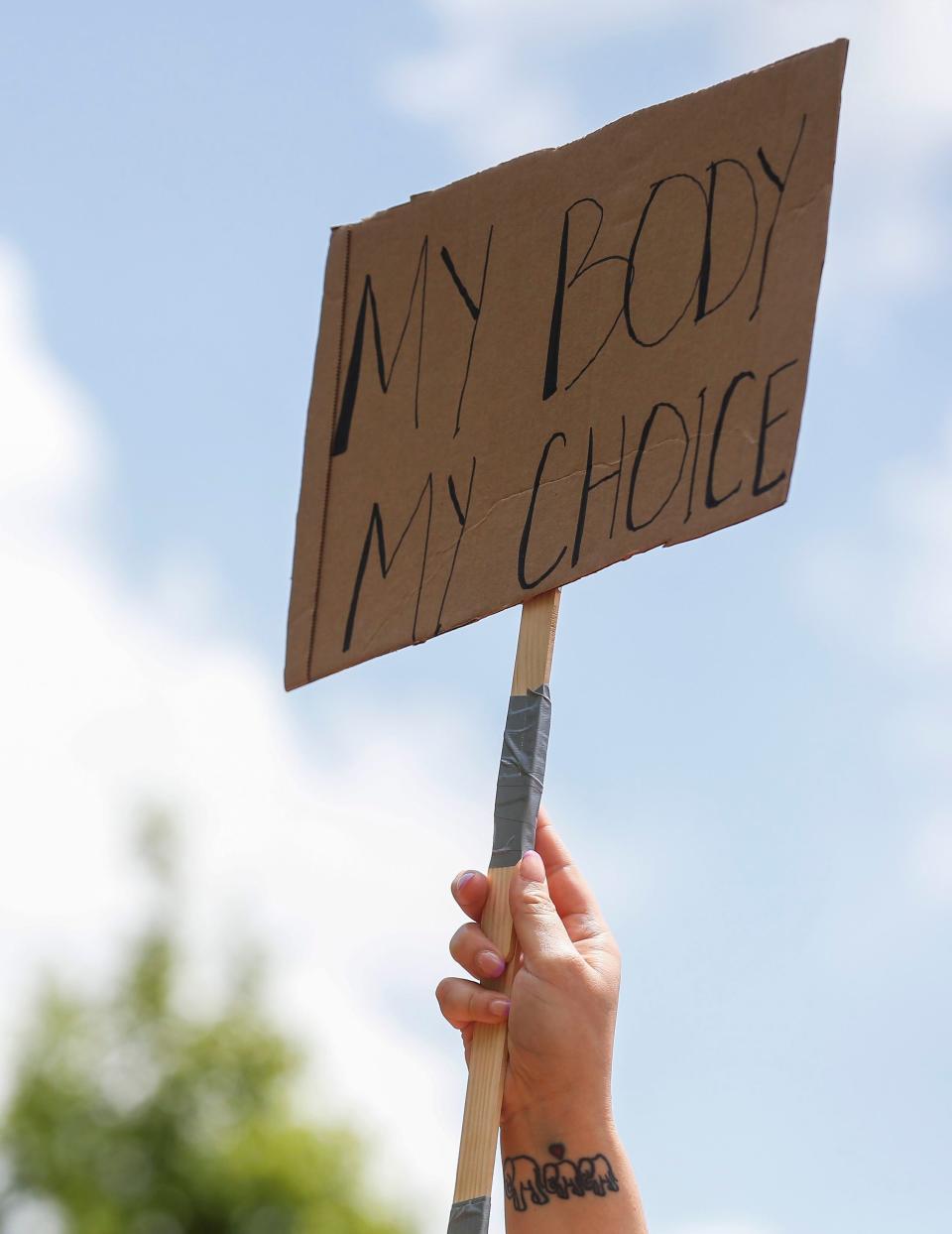Will states' post-Roe protections really block abortion investigations?
In a world full of uncertainty after the U.S. Supreme Court’s gutting of Roe v. Wade, legal experts are sure anti-abortion states will fight the new “sanctuary” laws popping up across the country.
Whether the protections will hold up or how states might challenge them is more than murky — and not just because the laws are in their infancy. Experienced appellate lawyers who might have clarity say they’re “very uncomfortable” publicly discussing potential strategies.
“I am not going to give (anti-abortion states) any suggestions,” said Peter Goldberger, a Philadelphia-area criminal defense lawyer with more than 40 years of experience.

Former Texas solicitor general Jonathan Mitchell, who crafted his state’s abortion law, described the courts as now being in “uncharted waters” because of how states could attempt to use legal precedent to protect or prosecute abortion providers and patients.
“I expect that we’ll see efforts by Republican-led states to address the issue of abortion travel, while Democratic-controlled states will enact legislation to shield their in-state providers from the reach of those laws,” he said. “But it’s not clear how these interstate battles will play out in court.”
Federal appeals courtends legal challenge to Texas abortion law
It’s shaping up to be a protracted court fight, which worries reproductive health care providers already struggling with an influx of patients caught in the middle of that legal uncertainty. New England clinics are seeing patients traveling thousands of miles for services, in addition to a number of phone calls from Texas, Utah and Indiana residents seeking reassurance.
"They start calling 800 numbers and looking for any information they can get,” Dr. Jennifer Childs-Roshak, CEO and president of Planned Parenthood League of Massachusetts, told the USA TODAY Network after the Supreme Court overturned Roe on June 24.

'We will be ready for them': New England could become post-Roe safe haven for abortion
Here’s what we know about legal precedents that could be used to uphold or defeat abortion protections, and what states are doing now that the federal government no longer enshrines abortion as a constitutional right.
What states have banned abortion?
According to an October analysis from the Guttmacher Institute — a research and policy organization working to advance sexual and reproductive health and rights — 26 states are certain or likely to ban or heavily restrict abortion now that Roe v. Wade has been overturned: Alabama, Arizona, Arkansas, Florida, Georgia, Idaho, Indiana, Iowa, Kentucky, Louisiana, Michigan, Mississippi, Missouri, Montana, Nebraska, North Dakota, Ohio, Oklahoma, South Carolina, South Dakota, Tennessee, Texas, Utah, West Virginia, Wisconsin and Wyoming.
What are 'trigger laws?': Supreme Court ruling triggers maze of state abortion laws
Florida, North Carolina: These states could be pivotal for post-Roe abortion access
Some states had "trigger laws" in place in preparation for the June 24 Supreme Court decision in Dobbs v. Jackson Women's Health Organization
— laws that would be set in motion once an overturn occurred.

State judges temporarily blocked bans in Louisiana and Utah after the Supreme Court decision.
What states will protect abortion access?
Sixteen states and the District of Columbia currently have laws that protect the right to abortion, including five of the six New England states. Abortion is legal in New Hampshire, with restrictions, but the state has not passed a law protecting abortion access.
Abortion laws by state: Searchable database of state-by-state abortion limits and protections

Governors in Massachusetts, Rhode Island, Connecticut and Maine have said they’ll protect providers and patients from out-of-state investigations into abortion procedures.
Abortion rights in Massachusetts were strengthened: Here's what Gov. Baker did after Roe.
Massachusetts Gov. Charlie Baker, a Republican, issued an executive order to protect providers who perform abortions and gender-affirming care for out-of-state individuals and the individuals themselves. Lawmakers are working to codify the order as state law.
Rhode Island Gov. Dan McKee and Maine Gov. Janet Mills, both Democrats, signed similar executive orders on July 5.
Signed by Gov. Dan McKee: Rhode Islanders who help someone from out of state get an abortion are now protected
Connecticut became the first state to sign such protections into law on May 5. The Reproductive Freedom Defense Act took effect July 1. Connecticut and Maine are the two New England states that have expanded abortion access in recent years.
First-of-a-kind law: Connecticut’s Reproductive Freedom Defense Act took effect July 1
When New Hampshire Gov. Chris Sununu was asked during a recent public meeting if he’d issue similar protections or cooperate with other states’ investigations, Sununu replied that he isn’t “taking any additional action,” according to a video shared by WMUR-TV.
Executive Councilor @CindeWarmington questions @GovChrisSununu as Warmington seeks answers as to whether the state government will work with other states she says may eventually attempt to investigate or prosecute abortions provided to their residents in NH. #NHPolitics #WMUR pic.twitter.com/Gb88tkS1XZ
— Adam Sexton (@AdamSextonWMUR) June 29, 2022
Sununu later said in a written statement: “NH will not aid or assist in another state’s investigation or prosecution. We will not be extraditing individuals or doctors for what other states perceive as unlawful.”
Vermont might become the first state in the country to include abortion rights in its constitution, if voters elect to do so during November's general election.
Looking ahead: As more companies cover abortion travel in health insurance plans, are interstate travel bans next?
Could anti-abortion states sue states that don't cooperate with abortion investigations?
There are legal pathways if states like Texas want to try to force Massachusetts, Rhode Island, Connecticut and others to cooperate in abortion investigations, Goldberger and other legal experts told the USA TODAY Network.
Abortion rights: HHS Secretary Xavier Becerra says overcoming Dobbs won't 'be easy'
Law enforcement agencies have a duty to assist their counterparts in other states during civil and criminal investigations. The extent of that duty varies depending on what contractual agreements, known as interstate compacts, the states have with each other.
In addition, there are interstate laws governing things such as extradition, witnesses and evidence. There is also a legal concept known as the “effects doctrine” that allows states to prosecute people for their out-of-state actions if the actions have detrimental effects in their home state.
Officials keep saying police shootings are justified: Experts point to needed reform.
A mistake sent an asylum seeker to El Salvador: Then he was tortured, a NH lawsuit claims
Despite the Health Insurance Portability and Accountability Act
, a federal health privacy law also known as HIPAA, in many states healthcare providers can
, and sometimes must
, disclose protected information to law enforcement if they suspect a crime occurred. For instance, investigators can subpoena records from period tracking apps to build a case against someone – or engage in other types of surveillance, which has prompted women's health clinics to move to paper records or encrypted communication.
To Goldberger, the question isn’t really whether states can sue on any of these grounds, but whether the case will make it to court. Quoting a professor of his at Yale Law School, Goldberger said, “You can wrench out a paper towel and file it in court.”
Online data,medical records could be used to put women in jail under new abortion laws
Federal police accountability 'nearly impossible' in New England after Supreme Court case
“It doesn’t mean the judge is going to rule in your favor,” said Goldberger, who was in the same constitutional law class at Yale as Justice Samuel Alito.
There has only been one publicized prosecution for cross-border abortions in U.S. history, according to “The New Abortion Battleground,” a draft legal article that will be published in Columbia Law Review in January. In 1996, a Pennsylvania woman was prosecuted for taking a 13-year-old girl to New York for an abortion with the minor’s consent.
States’ rights: Should a state be able to impose its regulations on another state?
If a state was to challenge abortion protections using case law related to civil and criminal investigations, legal experts say a key factor will be whether a judge will see it as an abortion case or in the broader context of any one state’s right to regulate what happens within its own borders.
New post-Roe laws that limit a state’s right to regulate itself could have sweeping implications beyond abortions and health care, said Brietta Clark, a health law and reproductive justice professor at Loyola Law School in Los Angeles.
“It goes exactly contrary to what the court decided in Dobbs
,” Clark said, referring to the case that overturned Roe on June 24.
Miriam Krinsky, executive director of Fair and Just Prosecution, a nonprofit organization that advocates for criminal justice changes, agreed.
“I think it (would be) problematic… to erode the legal landscape that another state has put in place and assert its own will over that state’s body of laws,” said Krinsky.
What can 'safe haven states' do to ensure providers and patients are protected from abortion prosecution?
Anti-abortion states “will not wait” for the court to give them permission to apply their abortion laws outside their borders, three legal scholars wrote in “The New Abortion Battleground.”
Drexel University’s David S. Cohen, University of Pittsburgh’s Greer Donley and Temple University’s Rachel Rebouché wrote in the draft legal article that Missouri and other states are already trying.

Since litigation will take years to work its way through the courts, the authors outlined several steps they believe pro-abortion states could take to better protect abortion providers and patients.
Those steps include exempting providers from state extradition laws so the provider could offer abortions and telemedicine services in their home state to out-of-state patients.
Demand for telemedicine abortions increasesbut could face legal challenges post-Roe
States could exempt abortion providers from interstate discovery and interstate witness subpoena laws.
They could also prohibit medical boards and insurance companies from taking adverse action against providers who assist out-of-state patients, or remove requirements that ask patients where they live.
However, Cohen, Donley and Rebouché caution thoese strategies could have major unintended consequences. Exempting abortion providers from certain laws, they argue, could undermine other agreements between states and cause states to retaliate against each other in other types of civil and criminal cases.
Gov. Janet Mills: Maine won't help prosecute abortion seekers, providers
Still, the authors argued states will need to take bold action if they want to ensure they have the right to govern reproductive health as they see fit.
“For half a century, the antiabortion movement has thrown whatever it can muster against the wall, hoping something will stick and without fear of defeat,” Cohen, Donley and Rebouché wrote. “They have learned lessons, relied on lower court and dissenting opinions, lobbied state legislators, influenced federal policy, and continued to press their novel, often legally tenuous, approaches… Without the protection of Roe, the abortion rights movement will be forced to emulate at least some parts of this approach and press their own novel strategies in the coming years.”
Reporter Hadley Barndollar contributed to this article.
This article originally appeared on The Providence Journal: Most New England states protect abortions from out-of-state clients

